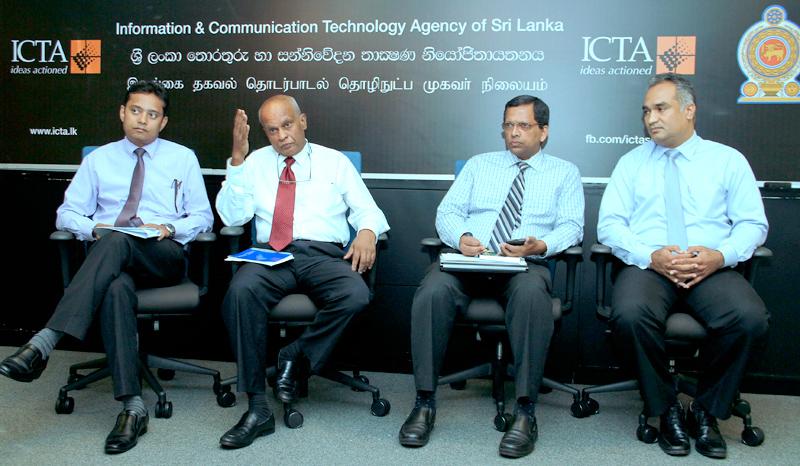
The Information and Communication Technology Agency (ICTA) has not given up on the ‘Google Loon Project’ but rather would see all possibilities to recommence its operations, a top official of ICTA said last week.
During a media briefing to outline ICTA’s plans under the ‘Road Map 2015-2020’ for telecommunication and digital infrastructure development in the country, ICTA CEO (Acting) Dr. Ajith Madurapperuma said that there were no plans to give up the project as such initiatives will help foster innovation and bridge the digital divide to boost economic growth in the country. “We have not abandoned the project as there are possibilities to resume work on it. We are awaiting a response from the International Telecommunication Union ( ITU) on obtaining the frequency,” Dr. Madurapperuma said.
“Once we receive it we could work out the next stages. However, at the moment there is nothing on the ground taking place,” Dr. Madurapperuma said.
ICTA and Google signed a MoU on July 28, 2015 to bring Project Loon to Sri Lanka with the objective of providing high speed broadband access to everyone.
However, the project hit a snag due to lack of transparency on the part of those carrying out the project in the country. Therefore, following objections raised by ITU the project came to an abrupt halt late last year.
Keen to brave any obstacle that stands in between, the ICTA team laid out its plans to spearhead ICT development through digitization programs to be launched across the country in the coming year.
“To-date we have created over 8000 knowledge agents from 800 Grama Niladhari divisions to guide citizens on user-friendly online information and services on good governance, citizens’ journalism and disaster management,” Dr. Madurapperuma said. According to ICTA Director Projects Indika de Zoysa over 330 municipalities have been digitized which will help reduce the time taken on documentation. “We will complete linking 30 sites this year and around 80 next year,” de Zoysa said.
ICTA plans to provide 350,000 IT devices to schools across the country next year under the Next Learning Paradigm Shift program.
“We will continue the Smart classroom project adding more such classrooms next year,’ de Zoysa said.
ICTA has implemented a multi-dimensional strategy bolstering education through the use of digital technology. Initiatives to enhance the quality of teaching and learning are carried out by ICTA in partnership with the Ministry of Education.
ICTA Director Special Projects Kanchana Thudugala said the e-Heath initiative by the ICTA has taken off the hassle of seeking healthcare from government hospitals to a large extent. To-date 15 hospitals countrywide have installed ICTA’s hospital health information management system with 35 more to be implemented by next month.
“Around Rs. 3 million will be saved by each hospital every month,” Thudugala said.
The ICTA team spoke extensively on the steps taken to boost digitization in the country such as the E-Government initiative to promote transparent and effective public services.
‘The public now have easy access to electronic birth, marriage and death certificates in addition to real-time verification of birth, marriage and death information,” an ICTA official said.
However when asked by journalists whether all planned projects would get off ground and what their timelines would be, an official said all projects have clear time lines handled by an expert team.
Employment by the ICT sector is estimated to be around 148,000 with over 225 tech startups. The country’s image as an offshoring destination gained further impetus as it was ranked 11th in the global Services Location Index (ATKearney) and among the top six Primary Countries in Asia Pacific by Gartner.
